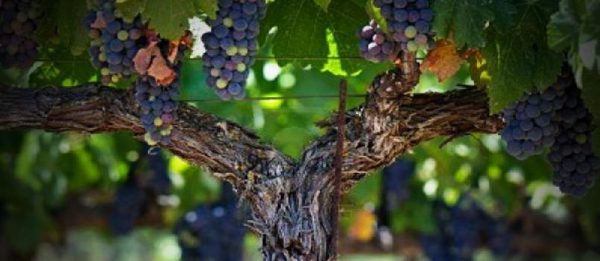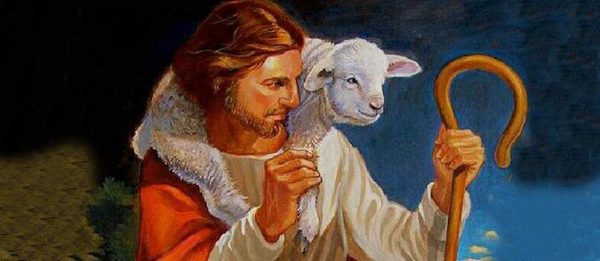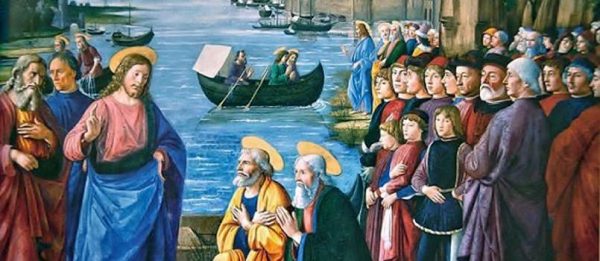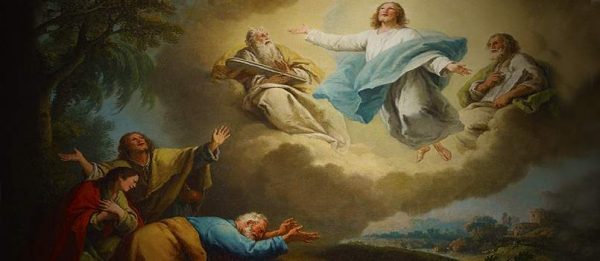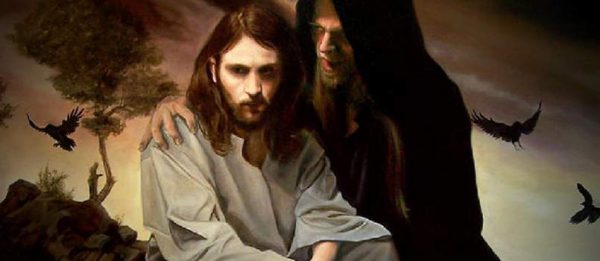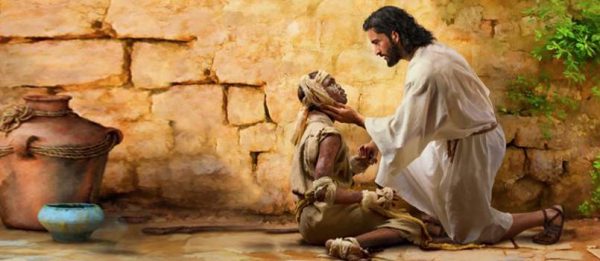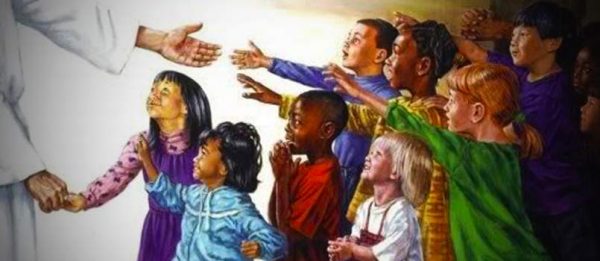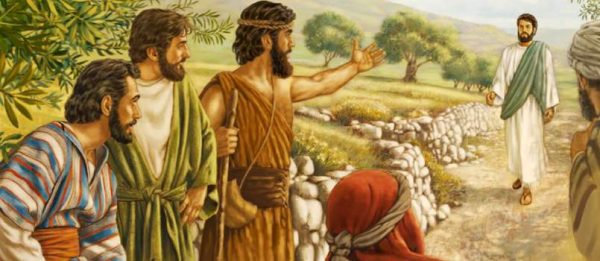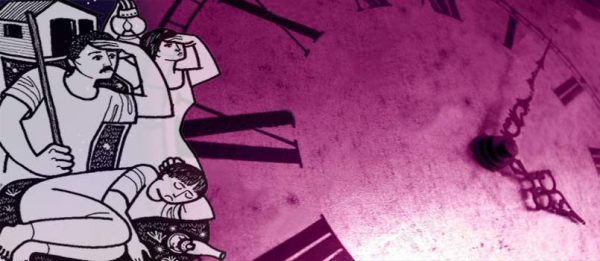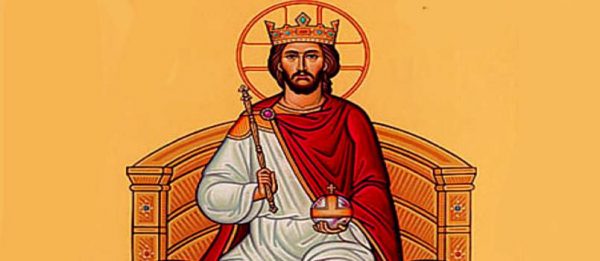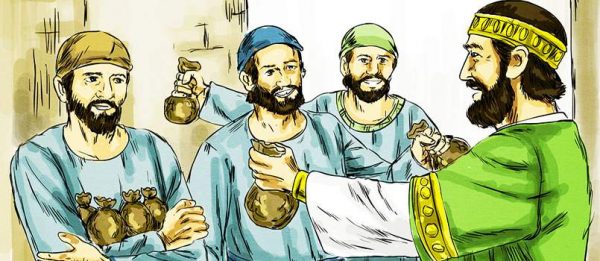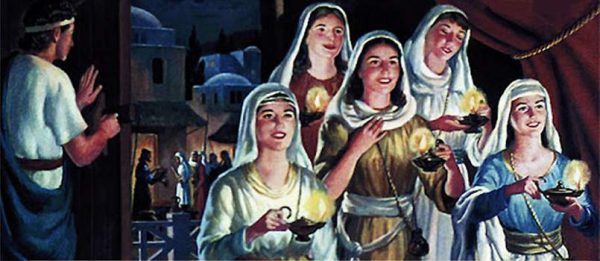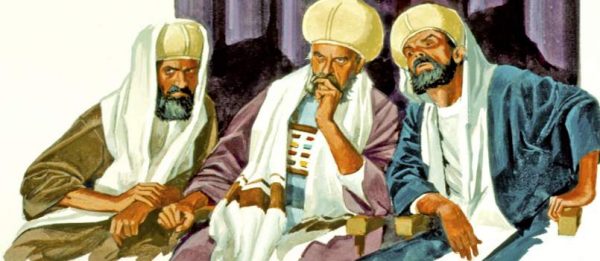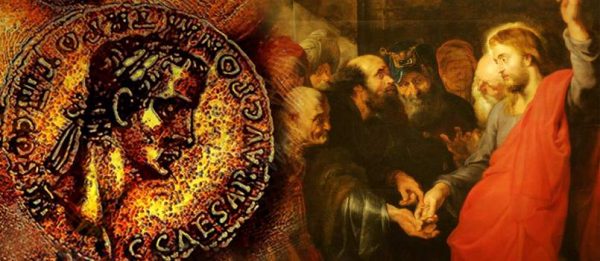227 total views
The Lord Is My Chef Sunday Recipe, Lent-4, 26 March 2017
1Samuel16:1,6-7,10-13//Ephesians 5:8-14//John 9:1-41
Today we have heard again another long, yet lovely story from the Gospel according to John, Jesus’ healing of a man born blind. And in the spirit of the fourth Sunday called “Laetare Sunday” for rejoicing, our long narrative from John is filled with some quirky or funny yet ironic twists that speak so well of our lives. Indeed, Lent is life. Recall the tensions we have reflected from Temptation-Transfiguration to Almighty and Holy Jesus getting tired, asking water from a sinful Samaritan woman last week. This Sunday, we have contrasts among a man born blind being healed by Jesus, becoming so certain with so many things against those with sight so unsure after being blinded by pride, fear, and sins. Too often in life, we can be artificially blind that despite our gift of sight we refuse or fail to see the truth and realities in us and around us. This is always characterized by that tendency to always blame others and things, except one’s self.
As Jesus passed by he saw a man blind from birth. His disciples asked him, “Rabbi, who sinned, this man or his parents, that he was born blind?” Jesus answered, “Neither he nor his parents sinned; it is so that the works of God might be made possible through him.” (Jn.9:1-3)
People have always believed up to this time that any sickness is a punishment from God. That is totally wrong because God does not punish. Nothing bad like sickness could come from God for He is love! Sickness may be to evil as a consequence of our or others sinful actions but not as punishment from God. Here lies the problem in our “blaming game”- we are blinded from taking responsibilities for our acts that we would rather blame others for our sickness like those caused by too much alcohol consumption or smoking. But there are also many occasions that we get sick with nobody to blame, except our genes or being at the wrong place at the wrong time. Jesus is offering us the best way to deal with such situations: believe in Him, strive harder in life to overcome every difficulty and suffering so that in succeeding, we glorify God!
Jesus spat on the ground and made clay with the saliva, and smeared the clay on his eyes, and said to him, “Go wash in the Pool of Siloam”- which means Sent. So he went and washed, and came back able to see. (Jn.9:6-7)
Notice again the presence of the element of water here like in last Sunday’s story to remind us of the Sacrament of Baptism. John translated the meaning of Siloam not only for the sake of giving its meaning as “Sent” but to stress that Jesus was sent to cleanse us of our sins, to wash away our blindness due to sins and evil. This is the Good News this Sunday: Jesus is sent not to remove but to join us in life’s pains and sufferings so that we may overcome them just as He had triumphed in His Resurrection. Every time we celebrate the Sunday Eucharist, we bring our baptism into perfection and we are washed and refreshed anew in Christ through His words and Body and Blood. So, stop your blaming game and start living anew! Remember the epic story of Internet sensation Nick Vujicic who came to visit Philippines twice last year? Born without arms nor legs due to a rare disease with nobody else to be blamed, Vujicic along with his parents overcame his very rare handicap and is now a widely acclaimed preacher and motivational speaker. He is also a CPA in California, happily married, and a father to two kids! He is perhaps the modern version of the man born blind healed by Jesus Christ!
It is only when we stop blaming others when we could see our true selves and that is when changes truly begin to happen in us. In the first reading, we are reminded of David being so young and lesser compared to his elder brothers but chosen by God to be the next king of Israel. In his youth and with slingshot, he downed Goliath and drove the Philistines away. Eventually he succeeded in uniting the tribes of Israel into a kingdom but when he sinned, he wholeheartedly took the blame and begged God’s forgiveness. It was from David’s lineage that the promised Messiah, Jesus Christ came from. Like David, we have been anointed with oil in our Baptism, a sign of God’s presence in us. When we remove Jesus Christ in our lives, when we refuse to acknowledge Him as our Lord and Savior, that is also when we are artificially blinded by sin, especially pride. And in the story of the healing of the man born blind, our artificial blindness could cause much pains on us and others too. Let us examine and reflect on how John the Evangelist contrasted the blind man with those with sights who could not see the truth.
His neighbors and those who had seen him earlier as a beggar said, “Isn’t this the one who used to sit and beg?” Some said, “It is,” but others said, “No, he just looks like him.” He said, “I am.” (Jn.9:8-10)
How many times have we seen ourselves in such a similar situation when some people around us could not accept we have grown, that we have changed for the best? This is the time when we feel like telling our doubters with “marunong pa kayo sa akin?” See how emphatic was the man born blind with his declaration when others doubted him with his firm “I am.” People sometimes belittle us, box us into somebody else, trying to seal our fate in life. Don’t mind them, just hold on to Jesus and let them “mamatay sa inggit.” One of the things I used to teach my students is the motto of a former Army General I used to cover before while with GMA7 News that I have modified into: “Think hard, work harder, pray hardest.” Try it and you would see better!
Now the Jews did not believe that he had been blind and gained his sight until they summoned the parents of the one who had gained his sight. They asked them, “Is this your son, who you ay was born blind? How does he now see?” His parents answered and said, “We know that this is our son and that he was born blind. We do not know how he sees now, nor do we know who opened his eyes. Ask him, he is of age; he can speak for himself.” His parents said this because they were afraid of the Jews, for the Jews had already agreed that if anyone acknowledged him as the Messiah, he would be expelled from the synagogue. For this reason his parents said, “He is of age; question him.”(Jn.9:18-23)
This is the saddest and most painful part of this rather humorous but lovely story of the healing of the man born blind. His parents could not vouch for his healing because they were blinded by the fear of being expelled from the synagogue. How sad that even in our lives today, those who are supposed to be dearest to us are the ones who could not stand by our side in difficult situations. The people we value and love so much are sometimes the ones who turn away from us, even betraying us like Judas Iscariot with Jesus Christ. Betrayers are the worst artificially blind people because they are blinded by money, by fame, and by other things that they would dump a beloved like Jesus, a husband or a wife, a brother or a sister, and a friend. Or a whole nation or particular constituents. We pray for our betrayers.
Finally, there is the blindness of those supposed to be learned men, those supposed to know more and better but pare lower with those physically blind like the Pharisees vis-à-vis the healed man born blind. The Pharisees refused to believe the healed man born blind that his eyes were opened by Jesus. The Pharisees refused to recognize Him as the Christ, calling Him a sinner because He healed on a Sabbath. John’s narration of the exchanges between the man born blind and the Pharisees is so lovely, even humorous. Notice how the Pharisees would insist that “we know this man is a sinner (Jesus)” while the healed blind man would retort with “I do not know but how come he (Jesus) had healed me?” This time, there is no tension but contrasts between those who know and the one who does not know. John noted there was division among the Pharisees about Jesus’ healing of the man born blind who, ironically, is very certain about Jesus. Perhaps exasperated, the healed man born blind said in the end, “This is what is so amazing, that you do not where he is from, yet he opened my eyes. We know that God does not listen to sinners but if one is devout and does his will, he listens to him. It is unheard of that anyone ever opened the eyes of person born blind. If this man were not from God, he would not be able to do anything.” (Jn.9:30-34)
Both the whole world and our nation are in deep darkness today with so many blind leaders and followers alike. St. Paul reminds us not to be blinded, to stop blaming others and start confronting ourselves in the light of Jesus Christ. “Take no part in fruitless works of darkness; rather expose them, for it is shameful even to mention the things done by them in secret; but everything exposed by the light becomes visible, for everything that becomes visible is light.” (Eph.5:11-14) An enlightened week ahead to everyone! Sorry for a very long reflection.
Fr. Nicanor F. Lalog II
Parokya ni San Juan Apostol at Ebanghelista,
Gov. F. Halili Ave, Bagbaguin, Sta. Maria, Bulacan











